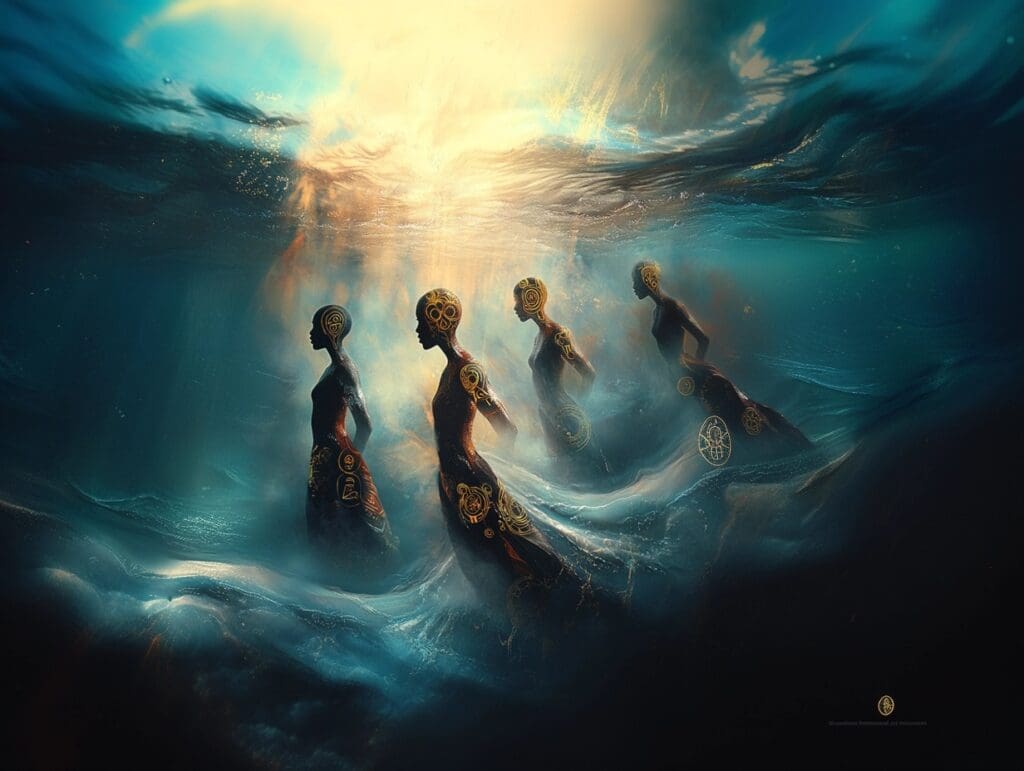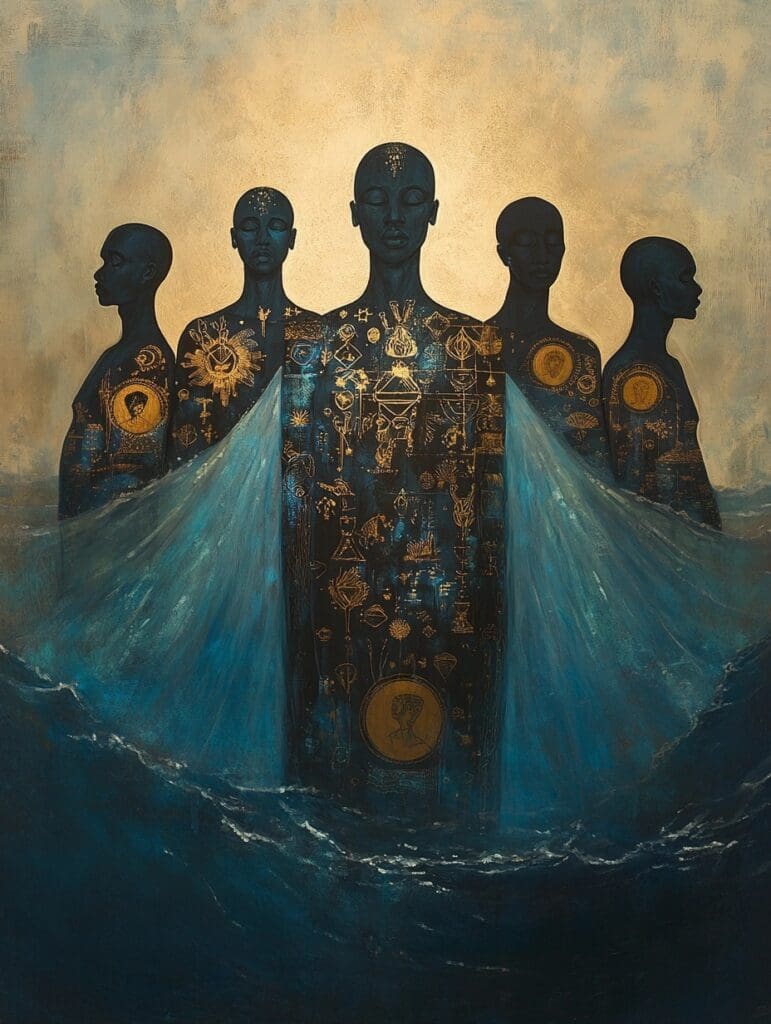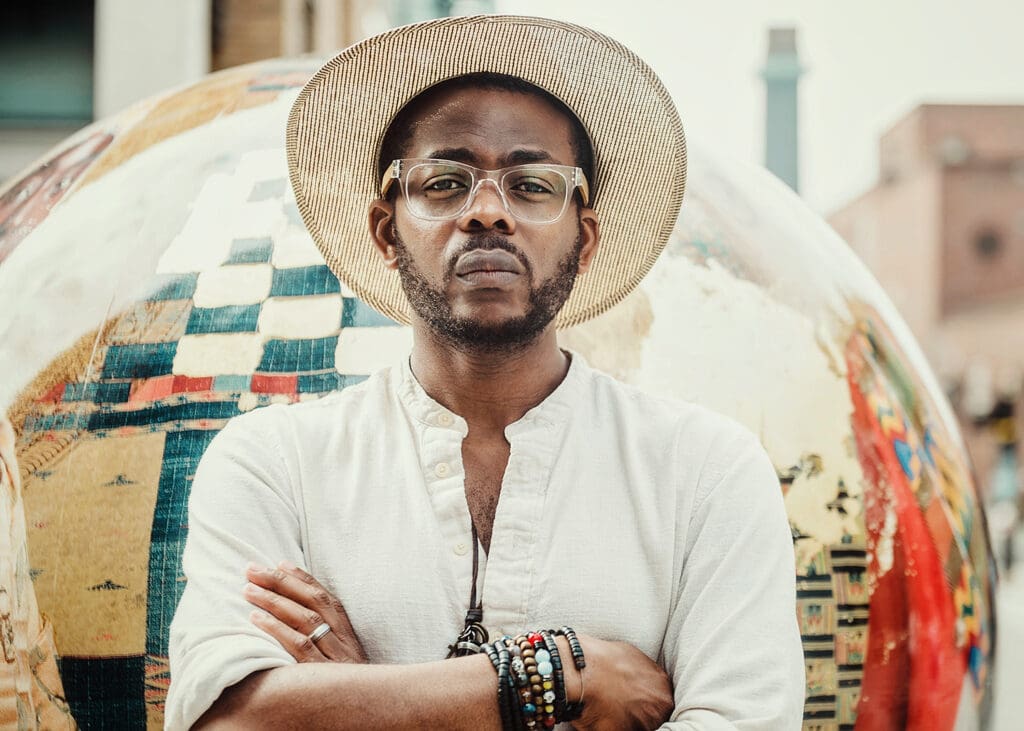Lost Songs of the Middle Passage by Àsìkò
Exhibition with opening night on 24 October



Lost Songs of the Middle Passage is an act of remembrance by Àsìkò. Curated by Femi Odunlami, Founder of Art.Africa, this thoughtfully-conceived exhibition begins in the silence of the Atlantic, where millions of African lives were lost—thrown overboard, drowned in despair, or buried within the suffocating holds of slave ships. Their voices were cut short, their songs silenced before they could echo across generations.
This body of work asks: what remains of those voices, and how do we hear them now?
Through layered images, archival fragments, and spectral presences, the project imagines the spiritual walk of those who perished. Their souls do not vanish; they gather in communion beneath the waves, drawn toward ancestral memory, toward Africa, toward a cosmic Baobab that transforms absence into presence.
The work resists history’s erasure by blending fact with the mythic. Ship diagrams, voyage records, and first-person accounts meet surreal visual language that transforms the ocean into both grave and portal. This is not only a mourning but a reckoning—an attempt to give form to the ungrievable, to return dignity where it was stolen.
The lost songs themselves are not written, nor can they be fully known. They surface here as whispers, as textures, as resonant silences. The project invites viewers to stand at the threshold between history and imagination, to listen for the songs that were interrupted, and to carry them forward as living memory.


About the artist
Àsìkò is a self-taught visual artist whose practice bridges his Nigerian heritage and British upbringing, exploring themes of cultural identity, displacement, and hybridity. Born in the UK and raised in Nigeria, he draws on his multifaceted experiences to create work that celebrates African culture while challenging traditional beauty standards and reimagining what it means to be Black.
Using a multidisciplinary approach—photography, sculpture, collage, AI, and film—Àsìkò constructs emotionally charged, autobiographical narratives that weave African spirituality, Yoruba folklore, and feminist ideals. His work often centers the Black body, interrogating notions of identity, gender, and power within socio-political and diasporic contexts.
Àsìkò’s work has been exhibited internationally at venues such as The Gagosian, Yoruba Museum, Venice Biennale, 1-54 Art Fair, Photo London and Rele Gallery, and featured in media outlets including The Guardian, The Financial Times, BBC, CNN, and Vogue. Represented by MTArt Agency, Àsìkò continues to push boundaries through his evocative visual language that fuses African traditions with global narratives, making him a leading voice in contemporary art.